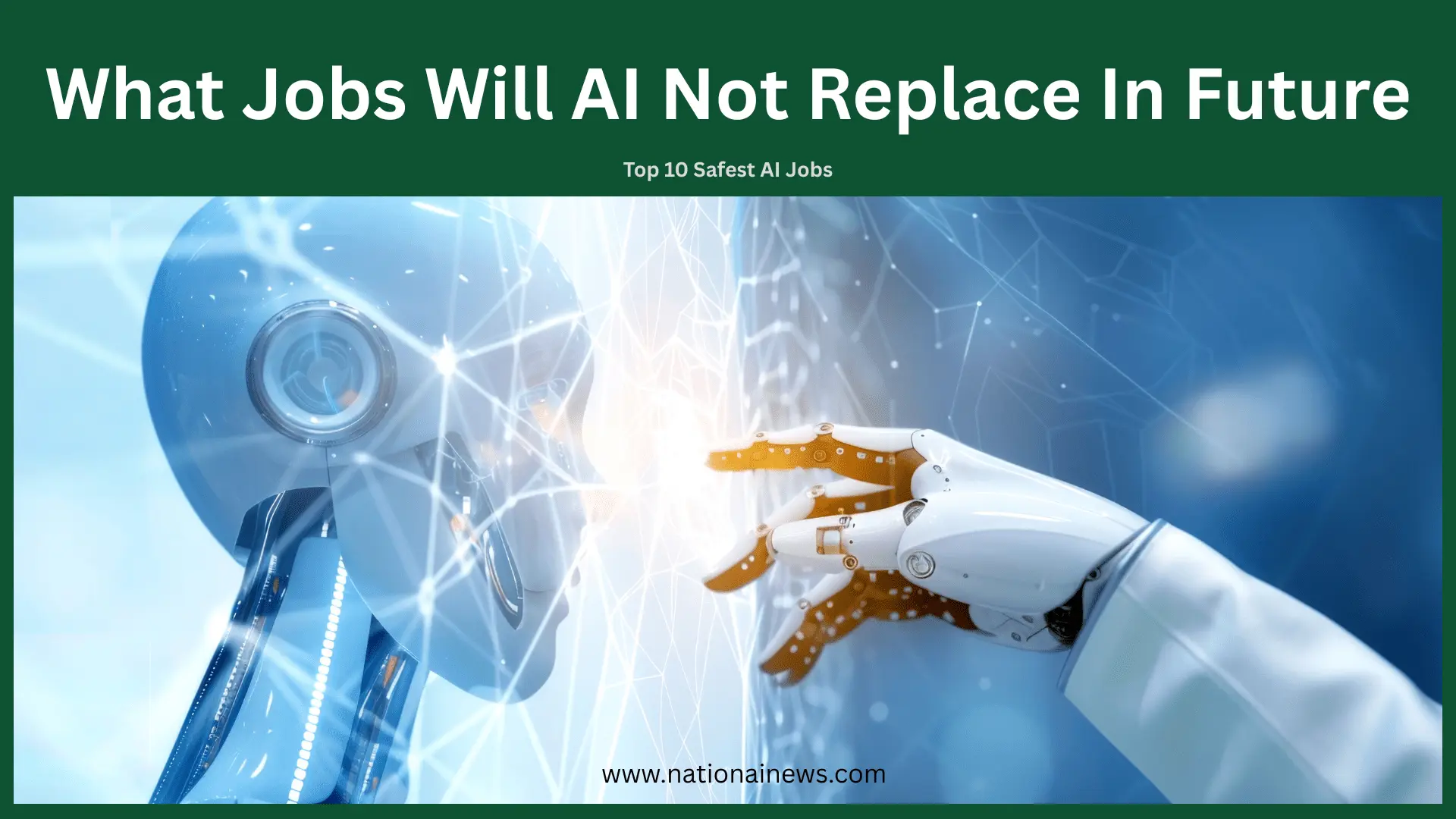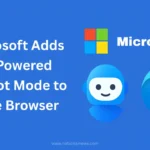What Jobs Will AI Not Replace? Discover the top 10 safest AI Jobs from automation with strong growth potential and future-proof your career today.

The rise of artificial intelligence (AI) and robotic automation is transforming industries across the globe. While this evolution brings many benefits – efficiency, accuracy, and speed – it also triggers a pressing concern for many professionals: “Will AI take my job?” As we embrace the age of automation, it’s critical to explore what jobs will AI not replace and which career paths are future-proof.
Choosing a profession today involves more than just passion – it requires strategic foresight. In an era where machines can automate repetitive tasks, selecting a career with a low risk of automation becomes essential. Even better if that field is projected to grow steadily in the next 10 years.
What Jobs Will AI Not Replace?
Jobs that are least likely to be replaced by AI or robots typically involve uniquely human qualities—empathy, emotional intelligence, creativity, and critical thinking. AI lacks the ability to understand complex social dynamics, provide emotional support, or innovate through artistic expression.
The most AI-resistant fields include:
Healthcare: Doctors, nurses, therapists, and counselors require personal interaction and judgment.
Education: Teachers and administrators adapt to diverse student needs – something AI cannot do effectively.
Creative Professions: Writers, artists, musicians, and choreographers rely on originality and emotional depth.
Personal Services: Jobs like cosmetologists, personal trainers, and coaches require interpersonal skills and hands-on work.
These roles depend heavily on human interaction and adaptability – skills that are inherently difficult for AI to replicate.
Top AI-Proof Job: What Jobs Will AI Not Replace
Leading the list of jobs AI will not replace are nurse practitioners, with an astounding projected job growth of 48.2% by 2035. This role demands compassion, decision-making in uncertain situations, and strong communication – all qualities machines currently cannot emulate. While becoming a nurse practitioner requires a master’s or doctorate degree in nursing, the career offers stability, purpose, and a median annual salary of $140,520.
Top 10 Fast-Growing Jobs AI Can’t Replace
Several other careers are also considered safe from AI automation due to their human-centric or creative nature. Here’s a list of the top 10 AI-proof jobs by projected growth through 2035:
| Rank | Job Title | Projected Growth (by 2035) | Estimated Median Annual Salary (2025) |
| 1 | Nurse Practitioners | +48.2% | $135,000 |
| 2 | Choreographers | +31.5% | $50,000 |
| 3 | Physician Assistants | +29.4% | $135,500 |
| 4 | Mental Health Counselors | +24.8% | $55,000 |
| 5 | Nursing Instructors | +23.1% | $85,000 |
| 6 | Coaches and Scouts | +21.3% | $45,000 |
| 7 | Athletic Trainers | +19.8% | $55,000 |
| 8 | Physical Therapists | +18.2% | $110,000 |
| 9 | Orthotists and Prosthetists | +17.6% | $85,000 |
| 10 | Occupational Therapists | +15.2% | $98,000 |
Why These Jobs Are Safe from AI
Most of these careers involve:
- Complex human interaction
- Unpredictable scenarios
- Creative thinking or emotional nuance
- Manual dexterity or physical presence
AI systems are limited to structured tasks and data-driven decisions. They lack emotional sensitivity, ethical judgment, and creativity – making it nearly impossible to fully automate professions that require these traits.
Also Read: What Is The Main Goal of Generative AI? Full Guide
How to Future-Proof Your Career in the AI Age
To stay relevant in the job market, focus on:
- Developing soft skills like empathy, communication, and adaptability.
- Pursuing education in fields that require human input and decision-making.
- Staying curious and upskilling regularly to evolve alongside technology.
By asking the right question – “What jobs will AI not replace?” – and acting on it, you’re already taking the first step toward building a sustainable and meaningful career.
Conclusion: what jobs will AI not replace?
As artificial intelligence continues to reshape the workforce, it’s more important than ever to ask the right question: what jobs will AI not replace? Jobs that need human skills – like empathy, creativity, and decision-making – are hard for AI to take over. That’s why careers in healthcare, education, and the arts are more secure.
To protect your future, choose a job that focuses on people, not just tasks. Keep learning new skills and stay flexible as technology changes.
The question “what jobs will AI not replace” is more important than ever. As AI grows, many roles are at risk, but some careers remain safe. AI may change the world, but it can’t replace the heart, mind, and creativity of a human.
Also Read: AI Impact: Entry-Level Computer Science Jobs in US Face Crisis




